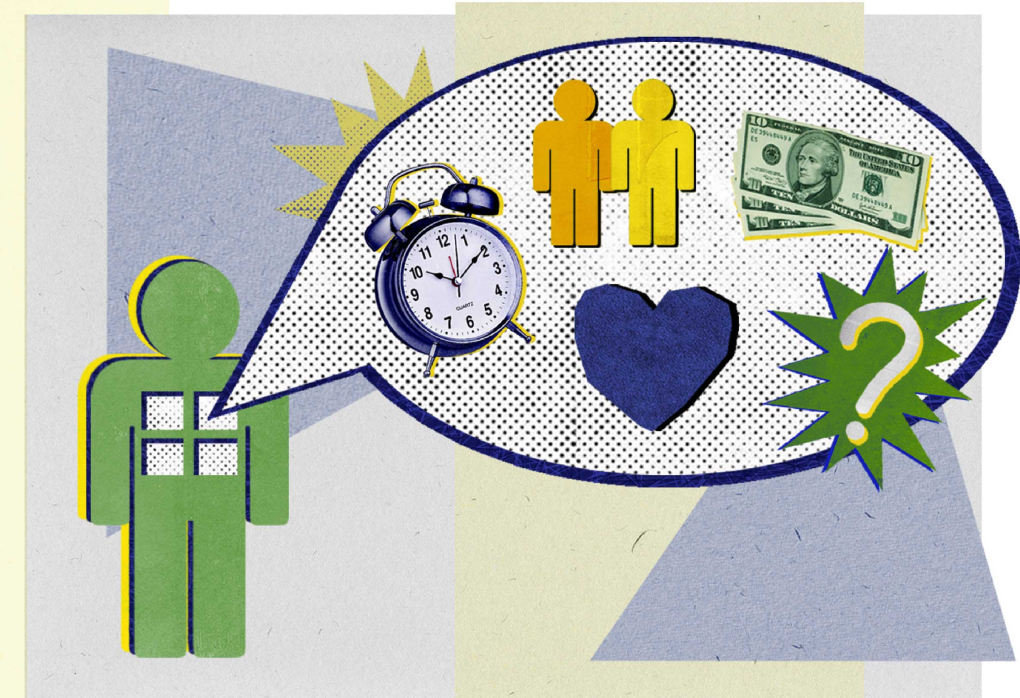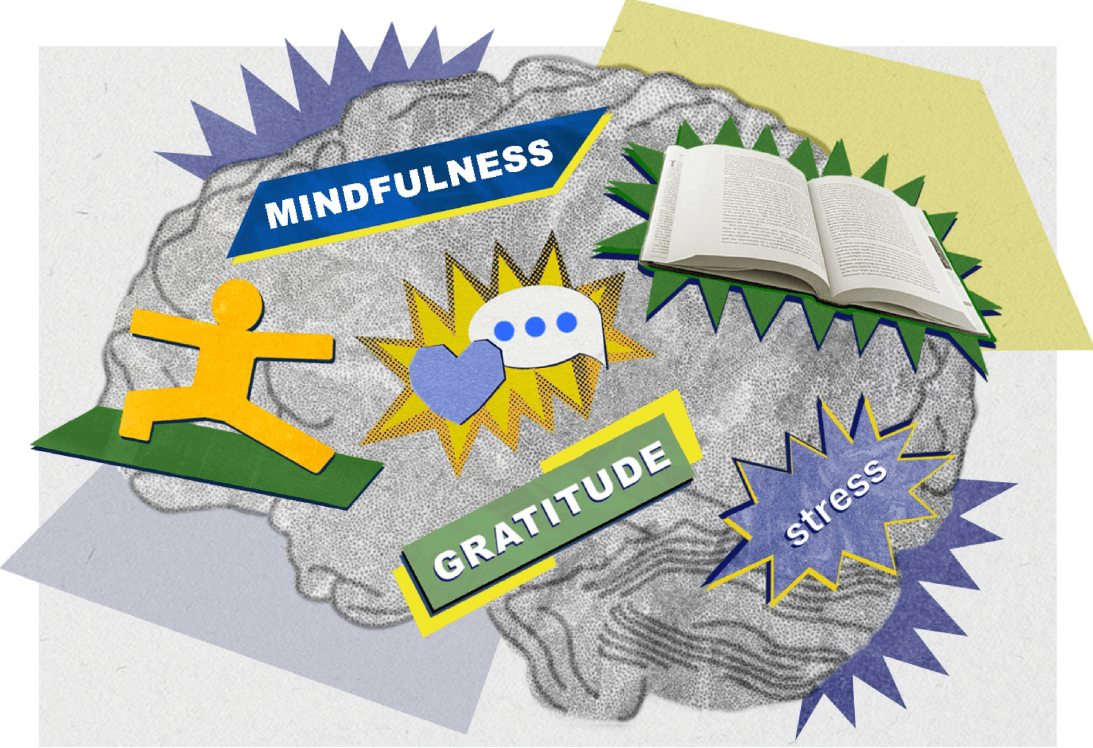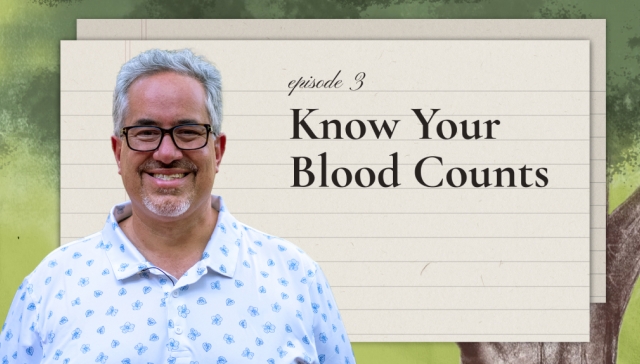Coping with a Myelofibrosis Diagnosis & Patient Mental Health Support
Since MF plays a role in your day-to-day life–from food to finances to what you do for fun–we created articles with experts' perspectives on practices that may improve life with MF.
Everybody's MF is different. This site does not constitute medical advice or mental health recommendations. Please talk to your doctor about your specific case.

Everybody's MF is different. This site does not constitute medical advice or mental health recommendations. Please talk to your doctor about your specific case.
Your overall health includes more than your MF
While one of the main characteristics of myelofibrosis (MF) is the diversity of its symptoms, what all MF patients have in common is a greater vulnerability to mental health issues.
We spoke to three mental health experts who all agreed that you can make positive changes in your mental and physical health and overall quality of life. Learn what to watch out for, why, and when to look for it. Then see what help looks like and where to find it.
“While getting a diagnosis can be a relief, the weight of having a rare disease is heavy.”
– Psychologist Dr Teresa Young
Mental health issues can show up at any point but commonly occur at:
- The point of diagnosis
- During and after treatment
- Beginning palliative care
Depression is associated with MPNs like myelofibrosis
Even if you’ve never experienced mental health issues, it’s important to keep an eye out for them. Coping with a cancer diagnosis itself is a medical trauma—a powerful shock to your system—as your body becomes a threat, a trigger for uncertainty and fear, explained Dr. Michelle Flaum, EdD, LPCC-S, DCMHS, Professor Department of Counseling at Xavier University. Flaum is an LPCC, a Licensed Professional Clinical Counselor, who works with cancer patients directly and supervises masters-level counseling students treating patients who have experienced medical trauma.
Mental health issues can show up at any point but commonly occur at:
- The point of diagnosis
- During and after treatment
- Beginning palliative care
“Cancer can be one of the most terrifying diagnoses,” Flaum said. “It becomes an issue of mortality. It triggers quite a bit of fear, understandably. And it can bring up deeper, more existential concerns. It can just open a window into processing your life, trying to make sense of your relationships, and your history, as well as creating anxiety about the future and what that’s going to look like for yourself and your family. This is a very heavy burden for people.”
And while, after months or years of sickness, getting an actual diagnosis can bring some relief, the weight of having a rare disease is heavy. People in your life may not know what MF is. And the literature may be based on individual case studies, rather than many participants.

The issues you experience may be as unique as your MF
The types of mental health issues patients with MF may experience can include depression, anxiety disorders, and distress. “I do a lot of work with people who are diagnosed with cancer, and not just in terminal situations,” Flaum said. “They are dealing with the loss of normalcy, the loss of a sense of self prior to who they were before the cancer diagnosis, the loss of different aspects of their identity, the loss of capabilities, and so much more.”
Licensed psychologist Dr. Teresa Young, who works with patients struggling with chronic illnesses like myelofibrosis, said depression and anxiety are the top of the list in the patients she sees, but notes many secondary diagnoses. “Depression and anxiety coincide with other issues that aren’t psychiatric, like existential dread, or difficulty tolerating the uncertainty, especially with rare cancers,” she said.

“Another concept getting traction in the research is not a psychiatric condition, but demoralization, which is distinguished from depression,” Young explained. “It’s when people can’t cope with the current situation. It’s a component of depression that’s really common with people with cancer.”

Whether or not you’re working with a therapist, our experts provide suggestions for reducing stress on your own, including:
- Books and workbooks
- Mental health apps
- A mindfulness practice
- Gratitude exercises
- Yoga
Mental health issues may affect overall symptom burden
While managing your myelofibrosis is your top priority, don’t overlook your mental health. It’s not one or the other.
“Depression and other mental health concerns can be treated even when [you are] dealing with very poor health,” said psychotherapist Marjorie Grafton, LISW-S, a licensed independent social worker with a training supervision designation. “In this case it is important to keep your expectations realistic. There is no therapy that can convince you that you don’t have cancer or that cancer is a breeze—these things are simply not true. But therapy can improve the way that you are coping with your cancer diagnosis, and the life changes that it brings can improve the quality of your time left. It can be easy to focus purely on survival, but the quality of your days matters just as much as the quantity.”
Whether or not you’re working with a therapist, our experts provide suggestions for reducing stress on your own, including:
- Books and workbooks
- Mental health apps
- A mindfulness practice
- Gratitude exercises
- Yoga
Left untreated, mental health issues may compound the challenges of living with MF. “We know the detrimental effects of stress on the body. Especially chronic stress. It can get to the point of affecting our immune system, and every system in our bodies. It’s important to learn how to better manage stress,” Flaum said.
Mental health issues can also impact your ability to follow through on cancer treatment. “I do know that the adjunct of psychological treatment does help with enhanced quality life,” Young said. “Maybe increasing survival rates as well—following medication regimen, making appointments, and getting support from family.”
Grafton added, “We know that when people living with cancer feel supported, they are likely to do better physically. Cancer patients receiving mental health care are more likely to follow through with medical care and even show improved survival rates. Overall, mental health care can lead to better quality of life, no matter the amount of time we have left.”
“It can be easy to focus purely on survival, but the quality of your days matters just as much as the quantity.”
– Psychotherapist Marjorie Grafton
Not sure how to find professional help?
- Ask your hematologist-oncologist, or MPN specialist, if they have a psychologist on staff
- Ask to speak with one of the social workers at your hospital
- Look for a myelofibrosis cancer support community in your city

More awareness and acceptance of mental health issues helps more patients get the support they need
The good news about seeking mental health support is that it’s a lot easier than it used to be, especially for cancer patients.
“In the last few decades, there’s been an increase in awareness for the levels of support cancer patients need,” said Young, pointing to the fact that today there is a subspecialty of psychiatric oncology, and that many oncology practices have mental health professionals on their teams.
“In the last few decades, there’s been an increase in awareness for the levels of support cancer patients need.”
– Psychologist Dr Teresa Young
The pandemic played a significant role in how we talk about and treat mental health issues. “The number of resources, research studies, and people talking about medical trauma has grown exponentially,” Flaum said. “Then COVID really brought the connection between physical illness and mental health to the forefront in a huge way.”
The pandemic also generated a massive increase in the use of telehealth, which hasn’t waned, especially for people with medical issues that make travel—or even getting out of bed—difficult.
“In the last few decades, there’s been an increase in awareness for the levels of support cancer patients need.”
– Psychologist Dr Teresa Young
“You need someone you can share with, without censoring yourself. That becomes a very important part of the treatment process.”
– Dr Michelle Flaum
Paying attention to your mental health and treating it when necessary is an important part of living with MF. “You’re trying to hold everything together, hold your life together, work, take care of your family, and, on top of that, you’re trying to treat your cancer. So check in with yourself,” said Flaum. “Make sure you are communicating with loved ones, make sure you have a strong support system.”
“You need someone you can share with, without censoring yourself. That becomes a very important part of the treatment process. It doesn’t do any good to hold in those feelings,” Flaum continued.
Flaum added, “This is one of the most challenging and traumatic things we can experience in life. Give yourself some compassion and grace, and recognize that you’re not alone.”
Your mental health is not separate from your physical health. Managing your myelofibrosis includes addressing depression, anxiety disorders, or distress you may be feeling.
- Check in with yourself
- Know that your mental health issues will be unique to you
- Speak to your health care team about getting additional help
- Look for ways to manage stress with books, apps, meditation and mindfulness

